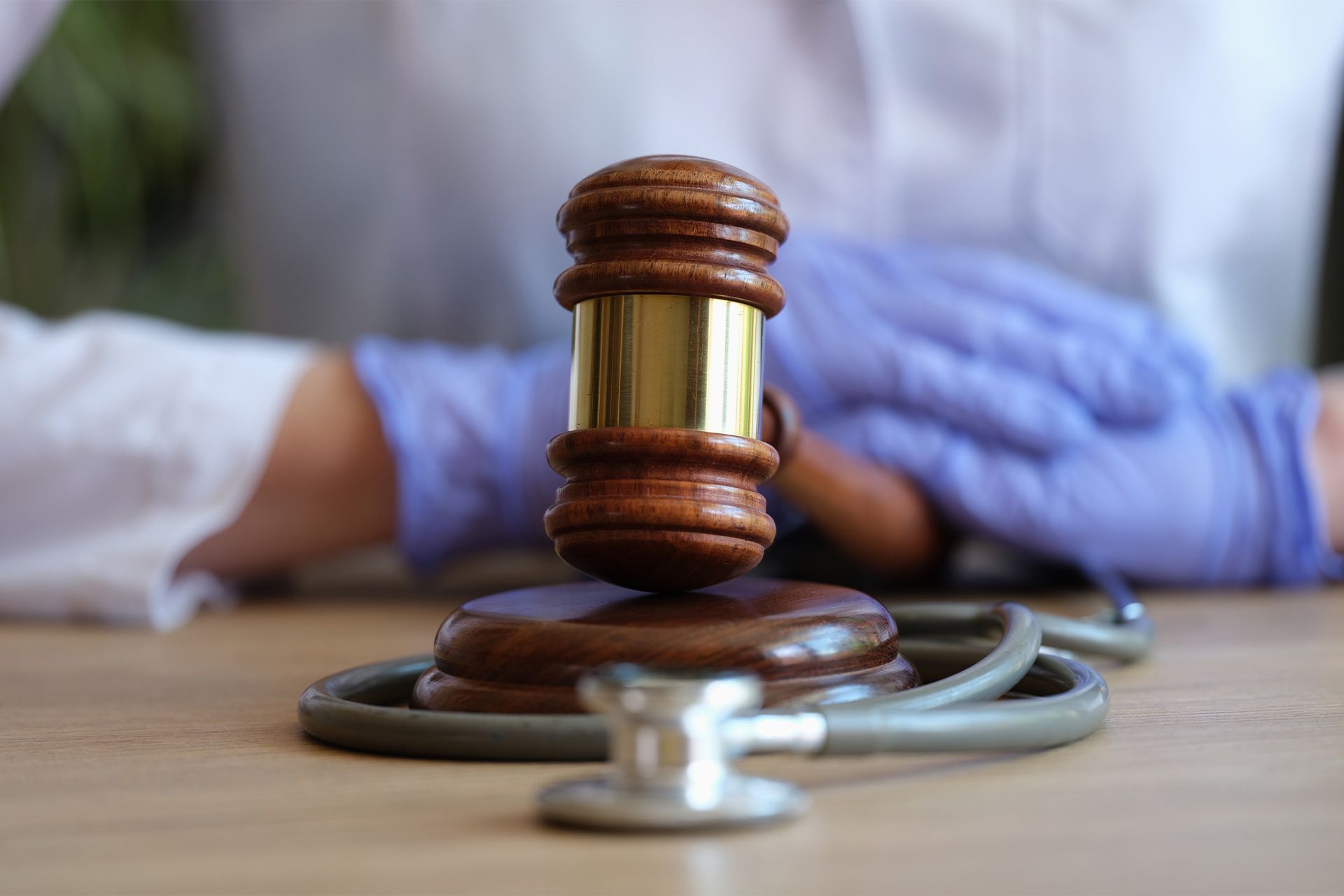Medical Malpractice for Misdiagnosis or Delayed Diagnosis Explained
When you visit a doctor, you trust them to find out what is wrong and give you the right treatment. But sometimes, a doctor makes a mistake. One of the most common medical errors is medical misdiagnosis or delayed diagnosis. These mistakes can lead to serious harm and life-changing problems. In many cases, injured patients need help from a medical malpractice lawyer, misdiagnosis lawyer, misdiagnosis attorney, or wrong diagnosis lawyer to get justice.
This guide explains what misdiagnosis is, why it happens, how it affects patients, and what you can do if you believe you were harmed by a doctor’s mistake.
What Is Medical Misdiagnosis?
Medical misdiagnosis happens when a doctor gives the wrong explanation for a patient’s symptoms. For example:
- A doctor says you have the flu when you actually have pneumonia
- A heart attack is mistaken for stomach problems
- Cancer is missed and not diagnosed in time
A misdiagnosis means the doctor did not correctly identify the real condition. A delayed diagnosis is when the doctor finds the correct problem, but much later than they should have.
Both situations can be dangerous because early treatment often prevents serious illness.
Why Does Misdiagnosis Happen?
Doctors must make quick decisions, but they sometimes miss important signs. Common reasons for medical misdiagnosis include:
1. Not Listening to the Patient
If a doctor rushes through your visit or ignores your symptoms, they might not understand the full picture.
2. Failing to Order Proper Tests
Blood tests, X-rays, MRI scans, and biopsies can reveal problems early. If these tests are skipped, the doctor may miss a serious condition.
3. Misreading Test Results
Even when tests are done, results must be read correctly. A small mistake can lead to a wrong diagnosis.
4. Not Referring to a Specialist
Some symptoms require expert attention. Not sending a patient to a specialist can cause delays.
5. Cognitive Bias
Doctors sometimes assume the most common illness is the right one, even when the symptoms point to something more serious.
6. Inadequate Follow-Up
A doctor should check if treatment is working. If they don’t follow up, they may not notice the real issue.
Conditions Most Often Misdiagnosed
Certain illnesses are more likely to be misdiagnosed than others. These include:
- Cancer (especially breast, lung, colon, prostate, and skin cancer)
- Heart attacks and stroke
- Infections, like meningitis or sepsis
- Blood clots
- Fractures, especially in older adults
- Autoimmune diseases such as lupus
- Diabetes complications
Many of these conditions become dangerous or even deadly when treatment is delayed.
How Misdiagnosis Can Harm Patients
A wrong or delayed diagnosis can cause many problems, such as:
1. Worsening Health
Without proper treatment, illnesses can progress, leading to long-term damage.
2. Wrong Treatment
Sometimes, the wrong medicine or procedure is given. This can cause side effects or new injuries.
3. Expensive Medical Bills
Additional tests, hospital stays, and emergency care can become extremely costly.
4. Emotional Stress
Patients often feel scared, angry, or betrayed when the truth finally comes out.
5. Lost Chances of Recovery
Some illnesses, like cancer, can spread quickly when not treated early.
When a doctor’s mistake causes harm, you may have the right to file a medical malpractice claim with the help of a wrong diagnosis lawyer or a misdiagnosis lawyer.
What Counts as Medical Malpractice?
Not every mistake is malpractice. To prove medical malpractice for misdiagnosis or delayed diagnosis, you must show:
1. A Doctor-Patient Relationship Existed
You received care from the doctor.
2. The Doctor Was Negligent
Negligence means the doctor did not act the way a skilled, careful doctor would have acted.
3. The Negligence Caused Harm
You must prove the misdiagnosis or delay directly caused injury, sickness, or worsening conditions.
4. The Harm Resulted in Damages
Damages include medical bills, lost wages, pain and suffering, and long-term health problems.
A misdiagnosis lawyer can help you prove each of these points and build a strong case.
How a Misdiagnosis Lawyer Helps You
Hiring a medical malpractice lawyer is important because medical malpractice cases are complex. Here’s how a misdiagnosis attorney can help:
1. Reviewing Medical Records
Your lawyer will carefully check all tests, notes, and reports for errors.
2. Working With Medical Experts
Skilled doctors will examine your case and explain how the mistake happened.
3. Proving Negligence
Your attorney will show how the doctor failed to meet medical standards.
4. Calculating Damages
This includes future medical costs, lost income, and long-term care needs.
5. Handling Insurance Companies
Insurance companies often try to limit payouts. Your lawyer will negotiate for fair compensation.
6. Representing You in Court
If needed, your lawyer will present your case to a judge or jury.
A wrong diagnosis lawyer ensures your rights are protected every step of the way.
What to Do If You Suspect Misdiagnosis
If you believe you were misdiagnosed, here are the steps to take:
1. Get a Second Opinion
Another doctor may quickly identify the correct condition.
2. Ask for Copies of Your Medical Records
These documents are important for proving your case.
3. Write Down Your Symptoms and Timeline
Details help your lawyer understand what happened.
4. Contact a Misdiagnosis Attorney
The sooner you speak with a lawyer, the easier it is to gather evidence.
5. Do Not Talk to Insurance Companies Alone
They may use your words against you. Let your misdiagnosis attorney handle all communication.
Why Timely Diagnosis Matters
A fast and correct diagnosis saves lives. When doctors act quickly, health problems can be treated before they become dangerous. Early diagnosis can:
- Improve recovery
- Reduce medical costs
- Prevent complications
- Provide peace of mind
When a doctor fails to diagnose a condition correctly or on time, the results can be devastating.
Final Thoughts
Medical misdiagnosis and delayed diagnosis can change a person’s life forever. If a doctor’s mistake caused harm to you or a loved one, you deserve answers and justice. An experienced misdiagnosis lawyer or wrong diagnosis lawyer can help you understand your rights and fight for fair compensation.
If you or a loved one suffered from a medical misdiagnosis, contact Chakour Law today for trusted legal help.
FAQs About Medical Misdiagnosis and Delayed Diagnosis
Is every wrong diagnosis considered malpractice?
No. A mistake becomes malpractice only if the doctor acted carelessly and caused harm.
How long do I have to file a misdiagnosis claim?
Each state has different time limits, called the statute of limitations. A misdiagnosis lawyer can explain the rules in your state.
What if the hospital, not the doctor, is responsible?
You may be able to file a claim against the hospital, clinic, or medical team. Your attorney will help identify all responsible parties.
Can misdiagnosis happen in the ER?
Yes. Emergency rooms are fast-paced, and mistakes are common—especially with stroke, heart attacks, and infections.
What compensation can I receive?
You may receive payment for medical bills, pain and suffering, lost wages, disability, and long-term care needs.
How much does a misdiagnosis attorney cost?
Most work on a contingency fee, meaning you pay nothing unless your case wins.
Disclaimer: The information on this website and blog is for general informational purposes only and is not professional advice. We make no guarantees of accuracy or completeness. We disclaim all liability for errors, omissions, or reliance on this content. Always consult a qualified professional for specific guidance.
RECENT POSTS






